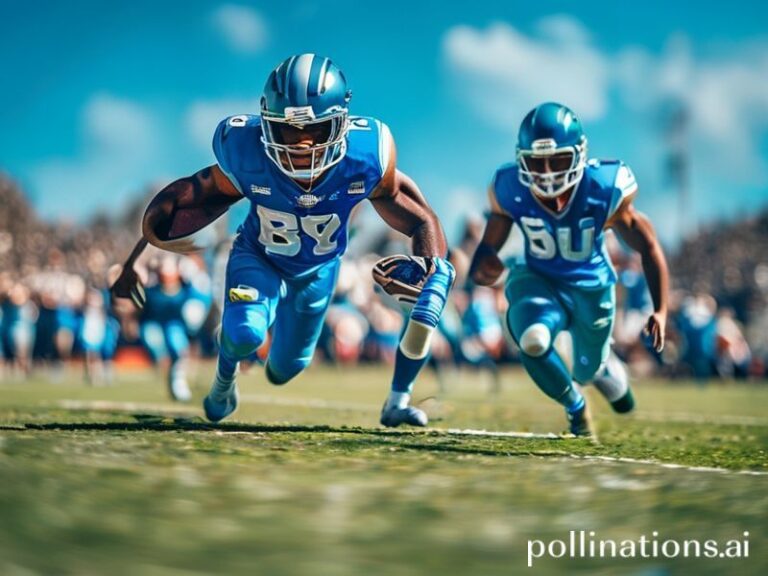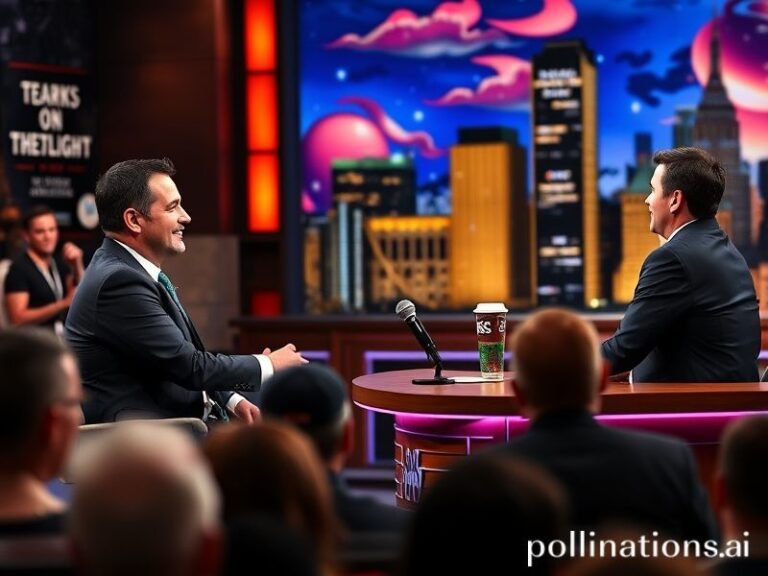Moise Kean’s Global Transfer Odyssey: A Sardonic Tour of Football’s Human Commodity Market
Moise Kean and the Global Transfer Carousel: How a Striker’s Career Became a Metaphor for Everything Wrong (and Right) with International Football
By the time Moise Kean turned 24, the Italian striker had collected more passport stamps than most foreign correspondents. Born near Turin to Ivorian parents, fast-tracked by Juventus, dispatched to Everton, loaned to PSG, recycled back to Juve, exiled to Atlético Madrid, and now—because football’s attention span is shorter than a TikTok clip—linked with every club between the Persian Gulf and the Potomac. If you squint, Kean’s résumé looks less like a career and more like an overworked air-traffic controller’s fever dream.
Welcome to the 21st-century football economy, where players are tradable geopolitical assets and even a 24-year-old can feel like a weathered veteran of capital’s endless summer. Kean’s saga is not really about goals or missed sitters; it’s about how the global game has perfected the art of turning human beings into leveraged buyouts. One season you’re the next Drogba, the next you’re a depreciating line item on someone’s balance sheet in a Delaware shell company.
Take last summer. Juventus—eternally one creative accounting scandal away from a Netflix documentary—needed to scrub €30 million off the books before UEFA’s financial fair-play accountants began sharpening their pencils. Solution? Ship Kean to Atlético Madrid for a fee that suspiciously matched the exact shortfall. The Spanish club, itself no stranger to creative jurisprudence, suddenly discovered the striker was exactly what Simeone’s squad lacked: a bench ornament with resale potential. Everyone wins, except perhaps the football, which remains stubbornly round and prone to physics.
Meanwhile, the Premier League’s rumor mill—now powered entirely by caffeine and Premier League TV money—reported that Newcastle, fresh from their Saudi rebrand, were “monitoring developments.” Translation: they’ve opened a tab on Transfermarkt and asked an intern to learn Italian swear words. In Riyadh, Al-Hilal supposedly weighed a bid large enough to fund three small nations’ sovereign wealth funds, but only if Kean agreed to pretend the 45-degree heat is “ideal for athletic performance.” Somewhere in all of this, a human being is supposed to remain professionally focused while his future is auctioned off like a Rothko at Christie’s.
The wider world watches with a mixture of envy and schadenfreude. In Dakar street leagues, kids wear knock-off Kean shirts and dream of the same transcontinental shuttle service—oblivious to the fact that the moment you’re valuable, you’re also expendable. In Singapore, betting syndicates tweak algorithms that translate a misplaced pass in Turin into a fluctuating decimal on a phone screen. And in Los Angeles, Hollywood agents wonder why they can’t option the screenplay rights: “It’s Moneyball meets The Terminal, but with more existential dread!”
Yet there’s a darker punchline. Kean’s itinerant career coincides neatly with Europe’s tightening borders and rising nativism. The same Schengen rules that once let a teenager hop from Verona to Paris without a visa now greet African migrants with barbed wire. Football’s passport privilege—sponsored by multinational brands—exists in a surreal parallel universe where talent is the only citizenship that matters, provided you can sprint 30 meters in under 3.8 seconds. Fail that benchmark and you’re consigned to the bureaucratic sludge everyone else calls real life.
Still, the striker soldiers on, posting gym selfies captioned “Work in silence.” Silence is relative; there are 2.3 million Google results for “Moise Kean next club.” Someday, perhaps, he’ll settle somewhere long enough to buy matching cutlery. Or perhaps not. Because in the global marketplace of sporting flesh, stillness equals death, and the carousel only accelerates.
Conclusion: Kean’s next destination will be announced on a blue-ticked feed, dissected by multilingual pundits, and forgotten within 48 hours—unless, of course, he scores a last-minute winner, in which case the hype cycle reboots and we all pretend this is sustainable. Until then, consider him the poster child for an age that perfected the export of human potential, but never quite figured out what to do with the humans themselves.







